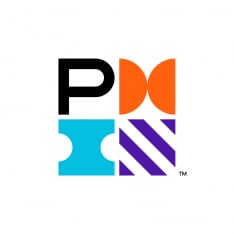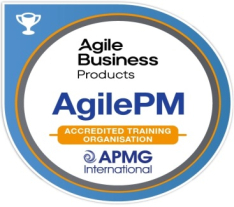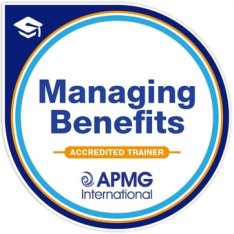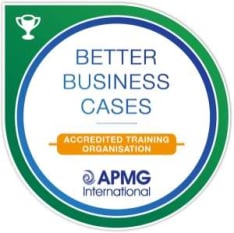Project Management Professional (PMP)® Syllabus
The PMP® Certification Exam Has Changed - The latest version of the Project Management Professional (PMP)® certification exam launched on 2 January 2021.
This exam boot camp will cover the following topics:
Domain 1: People
Task 1: Manage Conflict
- Interpret Source and Stage of Conflict
- Analyse Context for Conflict
- Evaluate/Recommend/Reconcile Appropriate Conflict Resolution Solution
Task 2: Lead a Team
- Set a Clear Vision and Mission
- Support Diversity and Inclusion
- Value Servant Leadership
- Determine an Appropriate Leadership Style
- Inspire, Motivate, and Influence Team Members or Stakeholders
- Analyse Team Members and Stakeholders Influence
- Distinguish Various Options to Lead Various Team Members and Stakeholders
Task 3: Support Team Performance
- Appraise Team Member Performance Against Key Performance Indicators
- Support and Recognise Team Member Growth and Development
- Determine Appropriate Feedback Approach
- Verify Performance Improvements
Task 4: Empower Team Members and Stakeholders
- Organise Around Team Strengths
- Support Team Task Accountability
- Evaluate Demonstration of Task Accountability
- Determine and Bestow Levels of Decision-Making Authority
Task 5: Ensure Team Members or Stakeholders are Adequately Trained
- Determine Required Competencies and Elements of Training
- Determine Training Options Based on Training Needs
- Allocate Resources for Training
- Measure Training Outcomes
Task 6: Build a Team
- Appraise Stakeholder Skills
- Deduce Project Resource Requirements
- Continuously Assess and Refresh Team Skills to Meet Project Needs
- Maintain Team and Knowledge Transfer
Task 7: Address and Remove Impediments, Obstacles, and Blockers for Team
- Determine and Prioritise Critical Impediments, Obstacles, and Blockers for Team
- Use Network to Implement Solutions to Remove Impediments, Obstacles, and Blockers for Team
- Re-Assess Continually to Ensure Impediments, Obstacles, and Blockers for Team is being Addressed
Task 8: Negotiate Project Agreements
- Analyse the Bounds of the Negotiations for Agreement
- Assess Priorities and Determine Ultimate Objectives
- Verify Objectives of the Project Agreement is Met
- Participate in Agreement Negotiations
- Determine a Negotiation Strategy
Task 9: Collaborate with Stakeholders
- Evaluate Engagement Needs for Stakeholders
- Optimise Alignment Between Stakeholder Needs, Expectations and Project
- Objectives
- Build Trust and Influence Stakeholders to Accomplish Project Objectives
Task 10: Build Shared Understanding
- Break Down Situation to Identify the Root Cause of a Misunderstanding
- Survey All Necessary Parties to Reach Consensus
- Support Outcome of Parties’ Agreement
- Investigate Potential Misunderstandings
Task 11: Engage and Support Virtual Teams
- Examine Virtual Team Member Needs
- Investigate Alternatives
- Implement Options for Virtual Team Member Engagement
- Continually Evaluate Effectiveness of Virtual Team Member Engagement
Task 12: Define Team Ground Rules
- Communicate Organisational Principles with Team and External Stakeholders
- Establish an Environment that Fosters Adherence to the Ground Rules
- Manage and Rectify Ground Rule Violations
Task 13: Mentor Relevant Stakeholders
- Allocate Time to Mentoring
- Recognise and Act on Mentoring Opportunities
Task 14: Promote Team Performance Through Application of Emotional Intelligence
- Assess Behavior Through Use of Personality Indicators
- Analyse Personality Indicators and Adjust to Emotional Needs of Key Project Stakeholders
Domain 2: Process
Task 1: Execute Project with Urgency Required to Deliver Business Value
- Assess Opportunities to Deliver Value Incrementally
- Examine Business Value Throughout Project
- Support Team to Subdivide Project Tasks as Necessary to Find Minimum Viable Product
Task 2: Manage Communications
- Analyse Communication Needs of All Stakeholders
- Determine Communication Methods, Channels, Frequency and Level of Detail for all Stakeholders
- Communicate Project Information and Updates Effectively
- Confirm Communication is Understood, and Feedback is Received
Task 3: Assess and Manage Risks
- Determine Risk Management Options
- Iteratively Assess and Priorities Risks
Task 4: Engage Stakeholders
- Analyse Stakeholders
- Categories Stakeholders
- Engage Stakeholders Category
- Develop, Execute and Validate a Strategy for Stakeholder Engagement
Task 5: Plan and Manage Budget and Resources
- Estimate Budgetary Needs to be Based on Scope of Project and Lessons Learned from Past Projects
- Anticipate Future Budget Challenges
- Monitor Budget Variations and Work with Governance Process to Adjust as Necessary
- Plan and Manage Resources
Task 6: Plan and Manage Schedule
- Estimate Project Tasks
- Utilise Benchmarks and Historical Data
- Prepare Schedule Based on Methodology
- Measure Ongoing Progress Based on Methodology
- Modify Schedule, as Needed, Based on Methodology
- Coordinate with Other Projects and Other Operations
Task 7: Plan and Manage Quality of Products/Deliverables
- Determine Quality Standard Required for Project Deliverables
- Recommend Options for Improvement Based on Quality Gaps
- Continually Survey Project Deliverable Quality
Task 8: Plan and Manage Scope
- Determine and Priorities Requirements
- Break Down Scope
- Monitor and Validate Scope
Task 9: Integrate Project Planning Activities
- Consolidate Project or Phase Plans
- Assess Consolidated Project Plans for Dependencies, Gaps and Continued Business Value
- Analyse Data Collected
- Collect and Analyse Data to Make Informed Project Decisions
- Determine Critical Information Requirements
Task 10: Manage Project Changes
- Anticipate and Embrace Need for Change
- Determine Strategy to Handle Change
- Execute Change Management Strategy According to Methodology
- Determine a Change Response to Move Project Forward
Task 11: Plan and Manage Procurement
- Define Resource Requirements and Needs
- Communicate Resource Requirements
- Manage Suppliers or Contracts
- Plan and Manage Procurement Strategy
- Develop a Delivery Solution
Task 12: Manage Project Artifacts
- Determine Requirements for Managing Project Artifacts
- Validate Project Information is Kept Up to Date and Accessible to all Stakeholders
- Continually Assess Effectiveness of Management of Project Artifacts
Task 13: Determine Appropriate Project Methodology or Methods and Practices
- Assess Project Needs, Complexity and Magnitude
- Recommend Project Execution Strategy
- Recommend a Project Methodology or Approach
- Use Iterative, Incremental Practices Throughout Project Life Cycle
Task 14: Establish Project Governance Structure
- Determine Appropriate Governance for a Project
- Define Escalation Paths and Thresholds
Task 15: Manage Project Issues
- Recognise when a Risk Becomes an Issue
- Attack Issue with Optimal Action to Achieve Project Success
- Collaborate with Relevant Stakeholders on Approach to Resolve Issues
Task 16: Ensure Knowledge Transfer for Project Continuity
- Discuss Project Responsibilities within Team
- Outline Expectations for Working Environment
- Confirm Approach for Knowledge Transfers
Task 17: Plan and Manage Project or Phase Closure or Transitions
- Determine Criteria to Successfully Close Project or Phase
- Validate Readiness for Transition
- Conclude Activities to Close Out Project or Phase
Domain 3: Business Environment
Task 1: Plan and Manage Project Compliance
- Confirm Project Compliance Requirements
- Classify Compliance Categories
- Determine Potential Threats to Compliance
- Use Methods to Support Compliance
- Analyse Consequences of Noncompliance
- Determine Necessary Approach and Action to Address Compliance Needs
- Measure Extent to Which Project is complying
Task 2: Evaluate and Deliver Project Benefits and Value
- Investigate How Benefits are Identified
- Document Agreement on Ownership for Ongoing Benefit Realisation
- Verify Measurement System is in Place to Track Benefits
- Evaluate Delivery Options to Demonstrate Value
- Appraise Stakeholders of Value Gain Progress
Task 3: Evaluate and Address External Business Environment Changes for Impact on Scope
- Survey Changes to External Business Environment
- Assess and Prioritise Impact on Project Scope or Backlog Based on Changes in External Business Environment
- Recommend Options for Scope or Backlog Changes
- Continually Review External Business Environment for Impacts on Project Scope or Backlog
Task 4: Support Organisational Change
- Assess Organisational Culture
- Evaluate Impact of Organisational Change to Project and Determine Required Actions
- Evaluate Impact of Project to Organisation and Determine Required Actions
The Knowledge Academy is a Authorized Training Partner (ATP) and is approved to provide PDUs by the Project Management Institute (PMI)®. ATP Licensed Provider. ID: 3444. This PMP® Training Course satisfies the 35 hours of contact required to take the PMP® Exam.
PMP is a registered trademark of the Project Management Institute, Inc.
PMI is a registered trademark of the Project Management Institute, Inc.
PMBOK is a registered trademark of the Project Management Institute, Inc.
The PMI Registered Education Provider logo is a registered mark of the Project Management Institute, Inc.
 To help and support our clients we are providing a limited number of 250 daily discount codes. Hurry, first come, first served!
To help and support our clients we are providing a limited number of 250 daily discount codes. Hurry, first come, first served!












 Top 55+ PMP Interview Questions and Answers for 2024
Top 55+ PMP Interview Questions and Answers for 2024 PMP Salary Across the Globe - Project Management Professional
PMP Salary Across the Globe - Project Management Professional PMP Salary Across the Globe - Project Management Professional
PMP Salary Across the Globe - Project Management Professional How Much does a PMP Certification Cost? A Complete Guide
How Much does a PMP Certification Cost? A Complete Guide How Much does a PMP Certification Cost? A Complete Guide
How Much does a PMP Certification Cost? A Complete Guide 8 Useful Tips for PMP Exam Prep
8 Useful Tips for PMP Exam Prep PMP Vs Scrum - Which is Better to Choose in 2024?
PMP Vs Scrum - Which is Better to Choose in 2024? How to Become a PMP Certified in 2024? Step-By-Step Guide
How to Become a PMP Certified in 2024? Step-By-Step Guide Top 8 Benefits of Getting PMP Certification in 2024
Top 8 Benefits of Getting PMP Certification in 2024


















 If you wish to make any changes to your course, please
If you wish to make any changes to your course, please


